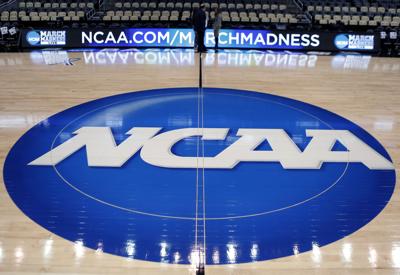If a billion-dollar organization breaks the law, should Congress reward it with immunity from the antitrust laws? The NCAA and some lawmakers seem to think so, and the recently introduced House bill — the Student Compensation and Opportunity through Rights and Endorsements Act — does just this.
College sports are at a crossroads. Student-athletes have only recently gained the right to earn money from their name, image and likeness. Just as this progress gains steam, Congress may undermine it by granting the NCAA a sweeping exemption from antitrust law.
Buried in the SCORE Act legislation is a clause that would make “compliance” with it broadly immune from enforcement of federal antitrust law and any state law or rules that have the same effect, no matter how anti-competitive its rules may be.
Translation? The NCAA could collude to cap athlete earnings and enact other rules that work to suppress competition harmfully, and no one could stop them.
Let’s be blunt: this isn’t about protecting “amateurism” in intercollegiate athletes. The SCORE Act is about preserving a $1.3 billion-a-year cartel from the free market. It’s about locking athletes out of the courthouse and giving the NCAA free rein to dictate the rules of the game.
As supporters of free and fair labor markets and college sports enthusiasts, we understand the consequences of government intervention that favors select players and grants them special privileges. We’re watching it happen in real time in industries like Big Ag and Big Pharma. Congress has already done so with the major sports leagues. Now the NCAA wants to join the club. Congress should shut it down.
The NCAA isn’t an organization that deserves a favor or needs a handout. It has spent decades violating antitrust law by banning athlete endorsements and monopolizing media rights. Only when the courts stepped in cases such as in NCAA v. Alston (2021), where the Supreme Court ruled unanimously against the NCAA, did change finally come.
Justice Brett Kavanaugh was crystal clear in his concurring opinion: “Nowhere else in America can businesses get away with agreeing not to pay their workers a fair market rate. ... The NCAA is not above the law.”
That’s precisely what the antitrust exemption for the NCAA would do: place the NCAA above the law. If passed, it would block future lawsuits by athletes seeking fair pay and nonmonetary benefits and preempt state laws that protect their rights. It’s not reform. It’s regression.
We’ve seen how this movie ends, and unlike our favorite sports movies, the underdog does not win. Major League Baseball has enjoyed a unique antitrust exemption for 100 years, and it’s been a disaster. MLB’s exemption let the league gut 40 minor league teams and keep players in poverty. Not even the courts could stop it. Even the Department of Justice said the exemption was being abused.
In the National Football League, a limited exemption under the Sports Broadcasting Act led to blackouts, monopolistic TV deals and decades of inflated costs for fans who just wanted to watch their hometown team. That’s the kind of immunity the NCAA wants, just as student-athletes are beginning to share in the value they create.
Why on earth would Congress give the NCAA the same power, especially now, just as granting student-athletes’ rights to NIL has injected some fairness into a system that has long exploited athletes while executives rake in millions?
Nothing in existing antitrust law prevents the NCAA from enforcing sensible rules, such as ensuring academic standards or banning pay-to-play schemes. What the law prohibits is collusion when competitors (in this case, schools and conferences) agree to suppress what athletes can earn. If the NCAA’s rules are truly reasonable, they’ll survive antitrust scrutiny. History teaches that, if they aren’t fair, they won’t.
Competition on and off the field is vital for college sports and for the welfare of student-athletes. The antitrust exemption in the SCORE Act would shred both.
Congress must act proactively on NIL and other features of an intercollegiate sports system to govern what is and is not permissible for student-athletes. It should protect NIL rights, preempt the patchwork of state laws and provide for the health, safety and well-being of student-athletes. College sports don’t need a cartel to survive; they need a fair and enforceable set of rules.
Granting the NCAA immunity from antitrust law tells every young athlete in America, “Your rights end where the NCAA’s power begins.”
That’s not the kind of message Congress should be sending. Let’s keep the playing field level and keep the law on the side of freedom, fairness and competition.











